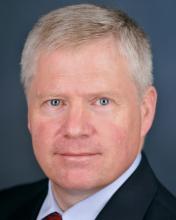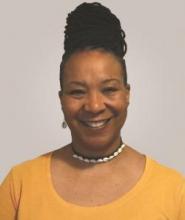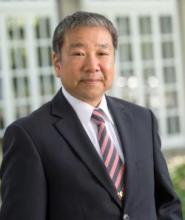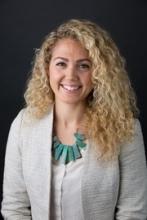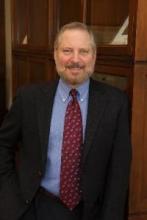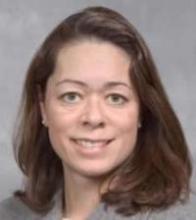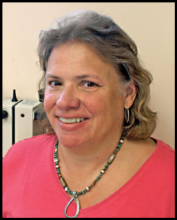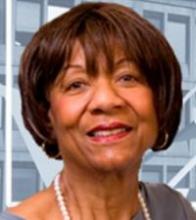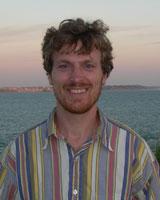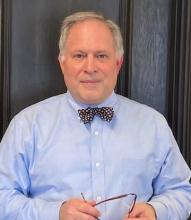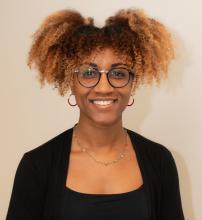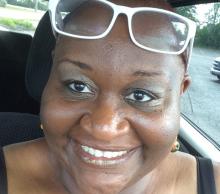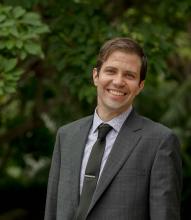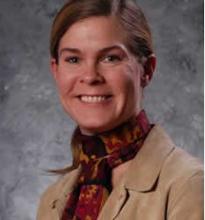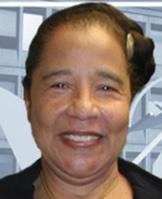Associate Professor, Biology
Regulation of tissue growth and morphogenesis.
Animal development is critically dependent upon precisely timed and orchestrated morphogenetic processes including cell shape changes and rearrangements. These morphogenetic events are triggered and controlled by developmentally regulated signaling pathways that lead to cytoskeletal dynamics in individual cells. These forces must then be propagated through the epithelium and maintained in order to elicit appropriate tissue-level morphological changes. These latter steps are dependent on emergent properties of the tissue including the viscosity and elasticity of the epithelium, the stiffness of the membranes and the mechanical properties of the extracellular matrix. An effective way to define novel mechanisms that contribute to these emergent properties is through the characterization of mutations recovered in genetic screens of morphogenesis. Through a series of genetic screens in the fruit fly, Drosophila melanogaster, we have identified a complex of interacting proteins that localize to the lateral membrane as playing critical roles in morphogenetic processes throughout fly development. These proteins ultimately form the septate junction, the primary occluding junction in invertebrate epithelia, however, their role in morphogenesis appears to be independent of this occluding function. Our current projects aim to gain a mechanistic understanding of how these proteins affect adhesion, cytoskeletal dynamics and tissue polarity during morphogenesis at various stages of development including oogenesis, embryogenesis, and metamorphosis.
Mary Kim
Teaching Assistant, FPB School of Nursing
Assistant Professor, Jack, Joseph and Morton Mandel School of Applied Social Sciences
Assistant Dean of Diversity and Inclusion, Jack, Joseph and Morton Mandel School of Applied Social Sciences
Dr. Fletcher holds a PhD, from Loyola University Chicago, and a Master’s degree in Social Sciences Administration from the Jack, Joseph and Morton Mandel School of Applied Social Sciences at Case Western Reserve University. Her research focus has been on the influence of implicit attitude on decision-making within the child welfare system and the phenomena of disproportionality.
She has been a practicing social work professional for the past two decades with work experience in child welfare, foster care, psychotherapy, Indian Child Welfare, Court Appointed Special Advocates, and Veterans. Previously, an appointment as an Assistant Professor at the University of Wisconsin–Green Bay, and her current appointment as an assistant professor at The Jack, Joseph and Morton Mandel School of Applied Social Sciences at Case Western Reserve University, have allowed Adrianne to utilize her teaching and advising skills, and also provide consultation/service to agencies regarding issues of cultural humility.
Further, she enjoys making herself available to facilitate discussions regarding the intractable thicket of race and culture for agencies and organizations who are aware that they are unaware. It is Adrianne’s desire to continue her research, which seeks remedies for the malady of negative implicit attitude among service professionals who work with individuals who are often marginalized, poor, physically exhausted and emotionally challenged.
Shigemi Matsuyama, DVM, PhD
Associate Professor, Department of Ophthalmology and Visual Sciences, School of Medicine
Associate Professor, Department of Pathology, School of Medicine
Associate Professor, Department of Pharmacology, School of Medicine
Associate Professor, Hematology and Oncology, Department of Medicine
Associate Professor, Division of General Medical Sciences
Associate Professor, Case Western Reserve University
Associate Professor, Case Comprehensive Cancer Center
Research Interests:
- Development of novel small compounds rescuing cells from mitochondria-dependent cell death
- The mechanism of epigenetic aging
- The development of the methods controlling aging and age-associated diseases.
- The mechanism of the inherited retinal dystrophies.
- Age-dependent corneal endothelial dystrophy.
Livia Timpanaro-Perrotta
Ms. Timpanaro-Perrotta is a recent graduate of CWRU with a Masters in Medical Physiology with honors in Clinical Neuroscience. As a component of her studies, she worked at University Hospitals of Cleveland in the General Neurology, Neuromuscular, and Stroke departments. She conducted research to determine patient outcomes after health-related interventions, and is currently co-instructing a Clinical Reasoning course series at CWRU School of Medicine.
Ms. Timpanaro-Perrotta grew up in California, but her family is originally from Rome, Italy. She enjoys working with and empowering youth to pursue excellence in their academics, which led to her mentoring and working with the Provost Scholars Program.
Jonathan Gordon, JD, BA
Mr. Gordon teaches legal writing and professional responsibility to international law students in the school’s LLM program. Gordon has taught various other JD courses over the years, including conflicts resolution, the lawyering process, pretrial practice and professional responsibility. Gordon was one of the founding members of the Stephanie Tubbs Jones Summer Legal Academy for local high school students. Gordon has also served as the faculty liaison for various externships with the U.S. Attorney’s Office, the Federal Trade Commission, the U.S. Equal Employment Opportunity Commission and several state Attorney General offices in Ohio and elsewhere. A graduate of Columbia University School of Law, Gordon began his legal career in private practice, focusing on civil rights and employment issues. Prior to joining the law school, he spent several years as a trial attorney for the U.S. Equal Employment Opportunity Commission, where he was involved in cases involving race, gender, religion, national origin, age discrimination, sexual harassment, retaliation and various class action matters.
Lee Thompson, PhD
Dr. Thompson is the Chair of the Psychological Sciences department and a Professor at Case Western Reserve University. Her research has explored the development of cognitive skills, temperament, and language from infancy through childhood using siblings, twins, and genetic techniques. She is particularly interested in how the genetic code is translated into complex behavior at the level of brain function. Dr. Thompson has also been the recipient of the McGraw-Hill Excellence in Teaching First-Year Seminars Award and a co-creator of the Seminar Approach to General Education and Scholarship (SAGES) program at Case. Dr. Thompson received her bachelor’s degree from Case Western Reserve University and her master’s and doctorate degrees from the University of Colorado at Boulder.
Marguerite (Peg) DiMarco, PhD, RN, CPNP
Dr. DiMarco is an Associate Professor in the Frances Payne Bolton School of Nursing, where she received her PhD. She has been a pediatric nurse for 40 years, taught nursing for 35 years and practices as a pediatric nurse practitioner for the last 19 years. Her research interests involve health/dental care for poor children. She has international and national presentations, publications, and funded research projects in this area. She had NIH funding for her dissertation "Access/Utilization of Dental Care for Homeless Children." Her latest interdisciplinary project received a $1+ million grant from Kellogg to provide oral healthcare and education to WIC mothers and children. Further, DiMarco became interested in the health of homeless children since she started her faculty practice at ACCESS in 1997. Lastly, she is an active member of the National Association for Pediatric Nurse Practitioners, where she also served on the board and as its oral health expert.
Patricia McDonald, PhD, RN
Dr. McDonald is an associate professor in the Francis Payne Bolton School of Nursing. Her primary research interests include the prevention and treatment of diabetes, particularly for African-Americans, chronic illness and health promotion for caregivers. She was also the principal investigator for the “Teaching Acceptance to Chronically Ill Older Adults,” “The Beauty for Ashes” projects, and co-investigator for the Parent Grant program with Dr. Jaclene Zauzniewski. Dr. McDonald earned her bachelor’s and master’s degrees in Nursing and Psychiatric and Mental Health Nursing, respectively, from The Ohio State University, and her doctorate in Nursing from Case Western Reserve University. While studying nursing, Dr. McDonald's educational interests were advanced practical nursing and mental health nursing. She has also been a visiting professor at the Department of Nursing, University of Zimbabwe. Finally, she completed a post-doctoral fellowship at Henry Ford Health Systems in Detroit, Michigan.
Lecturer, Lifespan Developmental Psychology
Dr. Ramsey received her PhD in Lifespan Developmental Psychology from North Carolina State University. Prior to joining Case Western Reserve University, Dr. Ramsey was a Visiting Assistant Professor at Belmont Abbey College and Affiliated Faculty with the Gerontology Program at UNC Charlotte. She has taught multiple Psychology and Gerontology courses at the undergraduate and graduate levels and is currently teaching Psychology of Personality, Health Psychology and Quantitative Methods in Psychology. Dr. Ramsey’s research collaborations have focused on examining and implementing evidence-based programming designed to promote the maintenance of functional capacity among older adults and programming targeted at mitigating the negative effects of stress and promoting effective emotion regulation, coping, and problem-solving strategies among informal caregivers.
Professor, Geochemistry & Mineral Physics
Dr. Van Orman's group studies planetary interiors (including our own) using a combination of experiments and modeling, constrained by observations. Recent and current research topics include the role of volatiles in the formation and evolution of the Moon; the chemical evolution of planetary cores; isotope fractionation in magmatic processes; diffusion in mantle, core and crustal minerals; chemical processes in Earth’s core-mantle boundary region; and the sequence and timing of events leading up to the planet-building stage in the early solar system.
Brian Gran, PhD
Professor, Sociology
My research, teaching, and service concentrate on how we use rights as means by which to improve well-being. My research program investigates what institutions and structures facilitate, and obstruct, agency when it comes to using rights to improve outcomes, reduce disparities, and advance social policies. My work matters to a range of stakeholders, from non-governmental organizations to quasi- and governmental institutions. Much of my work is interdisciplinary, drawing on sociology, law, and public policy research. A key component of my research is collaborating with students. I served as a Jefferson Science Fellow over 2020-2021 with a Bureau of the U.S. Department of State’s Under Secretary for Civilian Security, Democracy, and Human Rights. I completed my Jefferson Science Fellowship with the U.S. National Academies of Sciences, Engineering, and Medicine and returned to CWRU where I will teach Sociology of Human Rights for the Spring Semester of 2022. I will retain my status as an expert consultant to the US Department of State’s Bureau of Counterterrorism.
Graduate Student, School of Medicine, Neuroscience Department (Silver Lab)
Mary Louise Tatum, RN-BC, MSN, MPH
Teaching Assistant, Nursing
Mary Louise received her BSN from Cleveland State University and her Masters in Public Health from Kent State University. She is expected to receive her Masters of Science in Nursing: Family Systems Psychiatric Mental Health Nursing from Case Western Reserve December 2019. Mary Louise is a teacher assistant for CWRU and works for the Louis Stokes Cleveland Veterans Administration Center. She has taught nursing at the University of Unza in Lusaka, Zambia and was also a part of several research projects and volunteering, involving Type 2 Diabetes, sexual practices among college graduates, teaching safe practice to children who were homeless. She has a passion for working in the community and is a part of several organizations providing service at the local level.
George Blake, PhD
Postdoctoral Scholar in the Baker-Nord Center for the Humanities at CWRU
Dr. Blake holds a PhD and a Master's Degree from the Department of Music at the University of California, Santa Barbara. His research focuses on the hidden musical histories of Black Cleveland, while examining how performers throughout the region negotiate the racialized borders of urban space.
His teaching in urban ethnomusicology challenges students to use digital humanities tools (such as ArcGIS) to engage alternative musical archives and imagine place in new ways. An award-winning teacher, Dr. Blake has taught university courses on improvisation, Black film, jazz, music of the African diaspora, gender and sexuality, hip hop, world music, and popular music. His work includes research on blackface minstrelsy and his ongoing research on Robert Lockwood Jr. is supported by a grant from the UCSB Center for Black Studies Research.
Professor, Post Traumatic Stress Disorder (PTSD)
Our laboratory focuses on the development and evaluation of cognitive behavioral treatments for anxiety and mood disorders. Much of our work is focused in the area of PTSD specifically. We have ongoing research evaluating treatments for PTSD, understanding what predicts who will benefits from such treatments, which treatments people prefer, and finding ways to recognize pediatric posttraumatic stress disorder. We also have conducted treatment trials in the area of depression and bipolar disorder in youth. Our research has involved us in varied clinical settings: sexual assault programs, substance abuse programs, and outpatient treatment programs for anxiety and depression.
Please visit us at our lab webpage to learn more about our current team and projects: PTSD Research and Treatment Program
Faye Gary, EdD, RN, FAAN, is the Medical Mutual of Ohio Kent W. Clapp Chair and Distinguished Professor of Nursing at the Bolton School of Nursing at CWRU. She holds a secondary appointment with the Department of Psychiatry at the School of Medicine, is an Emerita Distinguished Professor at the University of Florida, Gainesville, and she consults with local and global community leaders across six continents. Her relentless pursuit for helping to create the next generation of diverse scholars, researchers, and leaders inspired her to build and expand the Provost Scholars Program. The work with Provost Baeslack and Dr. Myrna Corley has resulted in a novel program designed to provide phenomenal opportunities for youth.


